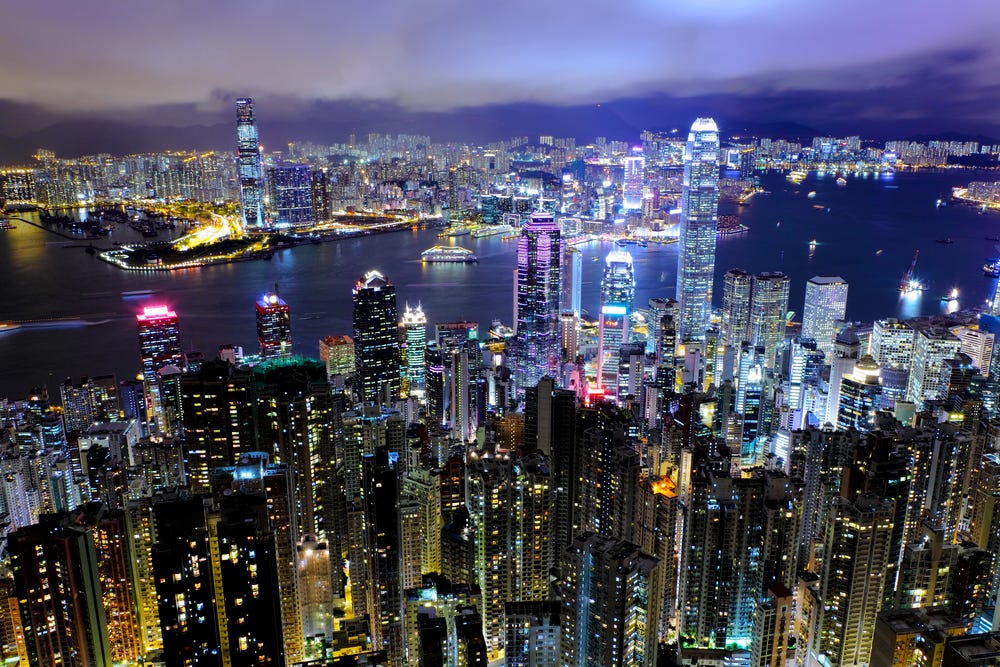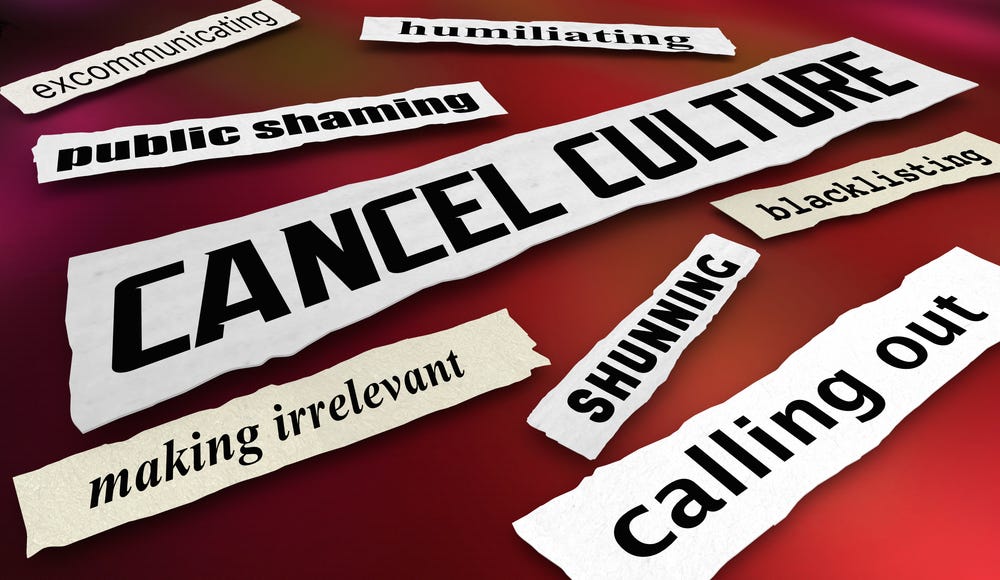E-Pluribus | October 21, 2021
Lessons from Hong Kong, the value of courage, and holding cancel culture accountable.
A round up of the latest and best writing and musings on the rise of illiberalism in the public discourse:
Timothy McLaughlin: How Hong Kong’s Elite Turned on Democracy
While China is largely to blame for the slow throttling of democracy in Hong Kong, Timothy McLaughlin writes for The Atlantic that the elite in that city are culpable as well. Hong Kong’s experience may well provide lessons for the West about what happens when the ruling class (and not just governmental) caves to the pressures of authoritarianism in the interest of self-preservation.
From afar, it may appear as though China’s reengineering of Hong Kong involves two parties: the authorities in Beijing, and a populace up in arms over the curbing of its freedoms. Yet the former could not have so easily succeeded in bludgeoning the latter into submission without a third group—Hong Kong’s ruling class. These officials, politicians, and commentators employ a combination of historical revisionism, double standards, gaslighting, and whataboutisms, carrying out Beijing’s mission of transforming the city while attempting to maintain the veneer of democratic competition and convince residents their freedoms have not been eroded. The messages they push, delivered straight-faced, beggar belief: A less representative election is actually more democratic; Hong Kong has never been as safe and stable, but the threat of terrorism has never been more dire; even as organization after organization is forced to close, civil society is as vibrant as ever.
These collaborators come in as many varieties as Hong Kong’s famed dim sum. There are the cheerleaders for patriotic state education who send their own children to international private schools and sit on the boards of universities overseas, and the elites whose family members reside in the same countries that they allege meddle in Hong Kong’s affairs. And there are the law-enforcement leaders who claim that the U.S. is trying to destroy Hong Kong but know the enemy well, many having studied there or even trained with the FBI.
In Hong Kong, some once-outspoken pro-democracy veterans now appear to suffer from sudden political amnesia. Officials who obediently worked for the British colonial government are clambering over one another to prove their nationalist credentials to Beijing. And those who decried the British, their heavy-handed laws, and the colonial police officers who enforced them now applaud the use of those same regulations as they pursue their political enemies. (A few of the British officers are still on the force.)
Read it all.
Bari Weiss: Some Thoughts About Courage
Bari Weiss draws on her own essay for Commentary in her latest Substack post regarding courage. Weiss says an “epidemic of cowardice” is abetting the slide into illiberalism currently plaguing our society.
Courage means, first off, the unqualified rejection of lies. Do not speak untruths, either about yourself or anyone else, no matter the comfort offered by the mob. And do not genially accept the lies told to you. If possible, be vocal in rejecting claims you know to be false. Courage can be contagious, and your example may serve as a means of transmission.
When you’re told that traits such as industriousness and punctuality are the legacy of white supremacy, don’t hesitate to reject it. When you’re told that statues of figures such as Abraham Lincoln and Frederick Douglass are offensive, explain that they are national heroes. When you’re told that “nothing has changed” in this country for minorities, don’t dishonor the memory of civil-rights pioneers by agreeing. And when you’re told that America was founded in order to perpetuate slavery, don’t take part in rewriting the country’s history.
America is imperfect. I always knew it, as we all do — and the past few years have rocked my faith like no others in my lifetime. But America and we Americans are far from irredeemable.
Read the whole thing.
Peter H. Schuck: Cancel Culture Has a Lot to Answer For
Using MIT’s treatment of Dorian Abbot as a launching pad, Peter Schuck at Quillette writes that cancel culture, even being the crude blunt instrument that it is, is having a troubling impact throughout our culture. While reason for hope exists as exemplified by some of the responses to the MIT debacle, individuals and institutions who continue to cave to illiberal pressures need to be called to account.
[Diversity, equity, and inclusion’s (DEI)] ideals are rhetorically appealing only so long as they remain undefined. Who, after all, can be against “diversity” and “inclusion,” at least in the abstract? The reality, however, is that as abstractions these concepts are merely aspirational and essentially empty. What they actually mean in practice—and what the cancellation cadres plainly mean by them—is strict regimes of affirmative action based on race, ethnicity, gender, and a few other attributes. These attributes, cancel culture insists, must be used in college admissions, job hiring, sports teams, instrumental ensembles, art projects, and all manner of groups regardless of the actual distribution of preferences, talents, interests, and availabilities among the supposed beneficiaries. In a striking example, the Art Institute of Chicago just announced that it was dismissing all of its docents and starting over because too many of them are white women.
Cancel culture prescribes affirmative action as the means to install diversity in all activities that it values. But affirmative action means very different things to different people. It ranges from greater outreach to unrepresented groups—which Americans largely favor—to numerical quotas for minority groups, which most, including most black Americans, largely oppose. The same distinction applies to inclusion and equity; many of us endorse them in the abstract but often disagree when faced with specific applications.
Cancel culture is different—and actually yields less genuine diversity. For example, its orthodoxies often contradict minority communities’ actual, intense desires for greater police presence and enforcement in their neighborhoods. These same orthodoxies also impede more effective discipline of unruly and violent students where such discipline might enable their children to learn and pursue pathways to a brighter future. Cancel culture’s zombie-like insistence that white racism today is still the main reason for continuing poverty, high violent crime rates, poor health conditions, domestic turmoil, and chronic family dissolution in troubled inner-city communities is a perverse distraction from, and even a denial of, the more important causes and possible remedies for these tragic, debilitating conditions.
Read it all here.
Around Twitter
Fallout continues at Yale Law over the school’s response to a student’s email:
Via Brent Scher, a new poll on levels of trust in various institutions - the federal government does not fare well:
Andrew Sullivan on the impenetrable logic of the far left’s conception of acceptable speech:
Finally, Colin Wright has some thoughts on yesterday’s International Pronouns Day:











